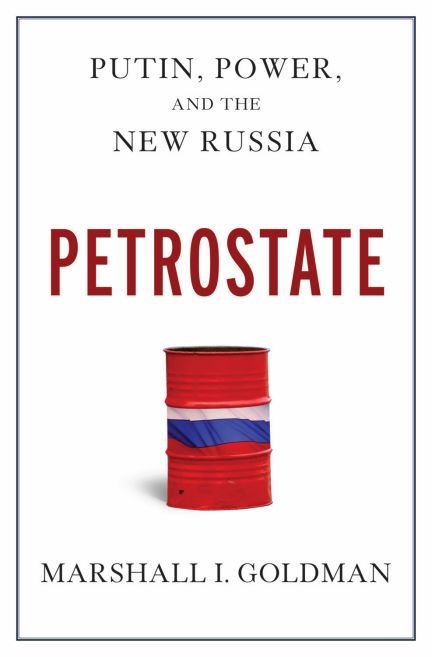

This is my way to celebrate Valentine's Day: one flower, two lovers and a city peeping them from its thousand windows. But this is also my way to celebrate my first oil painting: on Illustration Friday!
Questo è il mio modo di celebrare San Valentino: un fiore, due amanti e una città che li osserva con le sue mille finestre. Ma questo è anche il mio modo di celebrare il mio primo quadro a olio: su Illustration Friday!
Viewing: Blog Posts Tagged with: oil, Most Recent at Top [Help]
Results 26 - 33 of 33
Blog: Luci altrove (Login to Add to MyJacketFlap)
JacketFlap tags: Illustration Friday, Oil, Sold on eBay, Add a tag
Blog: drawings & sketches - dibujandoarte (Login to Add to MyJacketFlap)
JacketFlap tags: oil, dibujandoarte, monocopy, Add a tag
Blog: OUPblog (Login to Add to MyJacketFlap)
JacketFlap tags: Health, china, Business, Politics, environment, Current Events, cars, california, A-Featured, A-Editor's Picks, oil, Obama, sustainability, gordon, bail out, goverment, sperling, Add a tag
Deborah Gordon is a senior transportation policy analyst who has worked with the National Commission on Energy Policy, the Chinese government and many other organizations. Daniel
Sperling is Professor of Engineering and Environmental Science and Founding Director of the Institute of Transportation Studies at UC Davis. Gordon and Sperling are the authors of Two Billion Cars: Driving Towards Sustainability which provides a concise history of America’s Love affair with cars and an overview of the global oil and auto industries. In the original article below they look at what Washington needs to do to support sustainability.
Washington policymakers may have been backed into a costly corner on the Detroit bail out, but the real measure of their mettle is whether they can help us innovate our way out of this debacle. Automaking must undergo fundamental transformational change. The country needs a roadmap. That’s where Congress and the new Administration come in.
Over 20 years of government inaction does not instill confidence, however. Glorying in cheap oil, ignoring mounting imports, avoiding climate action, and preciously protecting U.S. automakers gave birth to Hummers while promising battery technology grew up overseas in Japan, Korea, and, increasingly, China. Few auto advances have been made. And now we’re poised to lose those gains as the venture capitial driven electric-vehicle companies that sprang up in recent years close shop.
One sure fix out of the utter mess we’re in would be to seriously raise gasoline taxes. This would change the entire oil equation, promoting sustained vehicle and fuel innovations the likes of which America has never seen. But with today’s economy bloodied and raw, this appears decidedly off the table, at least for now.
Instead, with current gasoline prices at all time lows, a minuscule 58 cents-a-gallon in 1980 dollars, the U.S. will remain hooked on oil. Priorities to accelerate the commercialization of clean advanced vehicles could be further derailed by Congress as it orders up the next fuel du jour. Corn ethanol, for example, a clear energy and climate fiasco, has long been the recipient of massive public subsidies amounting to about $10 billion in 2008. Federal commitments to clean vehicle and energy R&D, on the other hand, have dwindled to nearly nothing.
Over and over, the public interest has been swamped by regional and special interests and the private desires of consumers. This trend needs to be turned around: innovation needs to serve the public good.
California has figured out how to do this. And when it comes to cars, they have been pushing the envelope for half a century. It is now time for Washington to stop resisting a winning strategy and follow suit.
Adopting new clean vehicle performance standards is the key. The government must resist the temptation to pick winning technologies. Instead, we need innovative performance goals that let automakers and consumers decide which clean cars to commercialize. California’s 1960s pollution laws brought us the first automotive emission control, positive crankcase ventilation. Zero-emission vehicle regulations of the 1990s gave birth to the Prius. Just imagine what vehicle innovations new federal standards could summon.
The single most effective near-term action Washington can take to accelerate the development and adoption of next-generation clean vehicle technologies – electric vehicles, plug-in hybrids, and fuel cell vehicles – with no direct cost to consumers, is to create new performance standards for near-zero emission vehicles. Each company would be required to produce a set number of near-zero emission vehicles based on their market share, with more credit given to highly efficient vehicles with longer driving ranges that are mass marketed. Such regulations focus the minds of automakers and their suppliers. Small innovative start-up companies also get into the game. New supply chains for low-carbon cars would sprout up in America. Green jobs would be created.
It’s not too late for Washington, and Detroit, to follow the leaders and reimagine our automaking future. The European Union is already pursuing a near-zero emission vehicle category with less than 50 grams of carbon dioxide pollution for each kilometer traveled (equivalent to 113 mpg for gasoline).
So, while large gas taxes are still a sensible long-term solution, Washington must give automakers clear marching orders now. Our policymakers may be risk adverse when it comes to taxation, but Congress is an accomplished regulator.
The auto bail out, volatile oil prices, conflicts in the Middle East, increasing fears of climate change, and intense competition are creating the perfect storm for transformational auto innovation. Washington must take the reins and steer entrepreneurs, engineers, and the public down the path to reinvent vehicles.
Blog: OUPblog (Login to Add to MyJacketFlap)
JacketFlap tags: Business, Geography, A-Featured, maps, oil, Ben's Place of the Week, ben keene, Khurais, Oxford Atlas of the World, Saudi Arabia, Add a tag
Coordinates: 25 6 N 48 2 E
Estimated volume of oil: 27 billion barrels
The largest exporter of oil with over 20 percent of the world’s reserves, Saudi Arabia occupies roughly three quarters of the peninsula of arid land between the Red Sea and the Persian Gulf. As of 2007, this desert kingdom was producing approximately 11 million barrels of petroleum daily—an amount that could soon increase if all goes according to plan. Anticipating rising demand from Asia and wanting to exert more control over the market price for oil, the Saudis have lately intensified their efforts to tap into new fields. Khurais, east of Riyadh and roughly 150 miles from the Gulf of Bahrain, is one such project. Getting Khurais online does have its challenges however. In order to bring the light crude to the surface, tens of millions of gallons of seawater will have to be injected beneath the red sand dunes here. Nonetheless, experts predict that when finished, this massive cache will expand the nation’s production capacity by 1.2 million barrels a day.
 Ben Keene is the editor of Oxford Atlas of the World. Check out some of his previous places of the week.
Ben Keene is the editor of Oxford Atlas of the World. Check out some of his previous places of the week.
Blog: drawings & sketches - dibujandoarte (Login to Add to MyJacketFlap)
JacketFlap tags: sketch, oil, dibujandoarte, from photo, monocopy, Add a tag
 monocopy in oil
Originally uploaded by dibujandoarte
monocopy in oil
Originally uploaded by dibujandoarte Blog: Sugar Frosted Goodness (Login to Add to MyJacketFlap)
JacketFlap tags: dessin, illustrierung, illustracion, illustraties, candle, barrel, shell, saucer, illustration, cartoons, illustrations, satire, cartoon, metin seven, sevensheaven, world, illustratie, Earth, oil, Add a tag

Cartoon for the Dutch Nu.nl news website, about the return of Shell to Iraq to establish an increased oil production.
More at Sevensheaven.nl
Blog: OUPblog (Login to Add to MyJacketFlap)
JacketFlap tags: Exxon, Gazprom, GE, OPEC, petrostate, prices, ruble, world’s, dollar, History, Economics, Current Events, A-Featured, energy, oil, Finance, World History, Medvedev, Putin, Russia, petroleum, Add a tag
Marhsall Goldman is a Professor of Economics Emeritus at Wellesley College and Senior Scholar at the Davis Center for Russian Studies at Harvard University. In his book, Petrostate: Putin, Power, and the New Russia , Goldman chronicles Russia’s dramatic reemergence on the world stage, illuminating the key reason for its rebirth: the use of its ever-expanding energy wealth to reassert its traditional great power ambitions. In the article below Goldman reflects Russia’s role in increasing energy prices.
 As energy prices rise to record heights, most consumers are unaware that it’s not only OPEC members who are the beneficiaries, but Russia which today actually produces more petroleum that Saudi Arabia. Russia has been the world’s largest producer of petroleum several times in the past including at the beginning of the twentieth century and again in the 1950s. But its role today when energy prices are at record levels has made Russia an especially important economic and political power, more so than ever before in the country’s history.
As energy prices rise to record heights, most consumers are unaware that it’s not only OPEC members who are the beneficiaries, but Russia which today actually produces more petroleum that Saudi Arabia. Russia has been the world’s largest producer of petroleum several times in the past including at the beginning of the twentieth century and again in the 1950s. But its role today when energy prices are at record levels has made Russia an especially important economic and political power, more so than ever before in the country’s history.
In more recent times, the bounty brought in by Russian petroleum exports has transformed Russia from near bankruptcy in August 1998 to levels of prosperity unmatched not only in Soviet but Czarist history. The Russian government today has built up nearly $500 billion in foreign currencies—not bad considering that less than a decade ago, in 1998, Russia’s treasury was effectively empty. Moreover the Russian company, Gazprom, the world’s largest producer of natural gas has just recently become the world’s second largest corporation as measured by the combined value of its corporate stock, a distinction that until just recently was held by General Electric. Today only Exxon-Mobil is larger than Gazprom, but Prime Minister Putin has promised that he will do all he can to help Gazprom reach first place. More than that Putin has begun to question why it is that the dollar is the world’s currency standard. As the US dollar loses value, the ruble has strengthened, gaining 20 per cent in recent weeks.
Not surprisingly both Putin and his protégé, Dmitri Medvedev his successor as President, have begun to demand that the ruble be included as a world currency (not bad considering that only a few years ago the ruble was not even convertible into other currencies) and that Russia have a say in selecting the leaders of international financial groups such as the International Monetary Fund and the World Bank.
Given the likelihood that energy prices will remain at high levels for some time to come, it is likely that Russia will seek to use its new wealth to reassert itself as both an energy and a political superpower.
Blog: Scribbled Business (Login to Add to MyJacketFlap)
JacketFlap tags: painting, illustration, canada, art, sketch, children's book, original story, dustball, alberta, edmonton illustration, unique, dustball fairies, artist, children's book illustration, Add a tag
I am so excited to be working on a children's book with a local author. I am posting this image from the book, which happens to be page 01 of the story. The interesting part is that both people in this picture actually exhist in real life! Grandma GoGo is indeed our author!






Very, very sweet illo!
Aw, this is sweet! I like the wobbly cityscape. A GREAT framing device.
Adorable!! This is so sweet!
(^v^)
this is so beautiful! i love the coloring here, mute but sweet. great work!
this is such a beautiful celebration... lovely work
So cute! Really great tecnhique!
Very, very cute and lovely illo!!!
I love your style and colors -- this is so pleasing to look at!
Love the colors! Very very nice blend! :D
you have a lot to celebrate. super cute work.
Very Charming!
Very lovely illustration, I love your style, you make great textures and the use of color is also amazing! :)
questo è...esagerato!!! complimenti!!